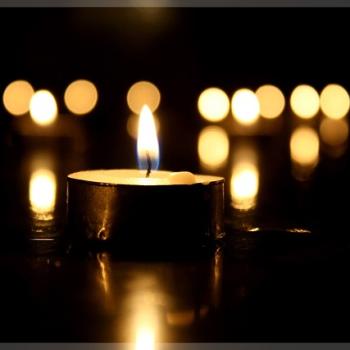
Have you ever played a gong?
I got to play a gong once. It was even sillier than you’d think.
I was a bookish, brown-nosing homeschooled high schooler who loved the arts and whose only desire was to be an actress in a Shakespeare company. I ended up passing an audition to attend a very highbrow “Summer Institute for the Gifted and Talented” and take BFA theater classes with guest artists at the Ohio State University for two weeks– easily the most fun I’ve ever had in my life. As part of the package, theater majors were also taught a real studio art class, a real dance class, and a real music class. Next to the theatre classes, I was especially exited about the music class. I love musical theater. I took piano lessons and sang in the choir. I could could read music and sing harmonies from tenor all the way up to first soprano. I could bang out a tune on the piano if I tried hard enough, though I wasn’t very good, and I’d played a brass instrument before as well. I wanted to impress the music professors with all my talent, but I didn’t.
You see, they never asked us to sing.
They sat us down in the music studio and handed us each a randomly selected rhythm instrument; different kinds of drum, a few bells, a tambourine. I was given the only gong.
The extremely patient music professors would verbally recite a rhythm such as “DOOM takatakata DOOM ta ta ta.” And everybody would echo what they’d said on their instruments. The people who had a drum would hit the middle of the drum and then the outside rim: DOOM takatakata DOOM ta ta ta. The person with the triangle played TING ting-a-ting-a-ting TING ting-ting-ting. The one with the wood block that had a fat and a skinny end would go TOCK tick-a-tick-a-tick TOCK tick tick tick. The people with the tambourine and sleigh bells made fairly rhythmic jangling noises JING jing-a-jingle-jing. And I gonged my gong.
I discovered that gongs don’t know how to play along with a rhythm.
When you strike a gong, there’s a lag of about a second and a half where the gong is vibrating but not making any noise. And then suddenly it does make a noise, softly at first and then insistent, and then back to soft: bbbbbbbbbwwwwwwAAAAAAAAAAAAAAAaaaaahhhhhhhhhhh. If there’s a way to stop a gong once it’s begun to go bbbbbbbbbwwwwwwAAAAAAAAAAAAAAAaaaaaahhhhhhhhhhh at an inconvenient time, I wasn’t taught it. Once I hit that gong, the cat was out of the bag. I tried to make the gong clang along with the rhythm. I tried hard. But all that happened was that everyone else in the music class was going DOOM takatakata DOOM ta ta ta like professionals while I went bbbbbbbbbwwwwwwAAAAAAAAAAAAAAAaaaaahhhhhhhhhhh at exactly the wrong time.
A few days later I was having lunch with some music majors and dance majors. They casually mentioned that the very patient music professors had remarked, “The theater majors couldn’t carry a tune, but at least they were nice.”
I’ve been thinking about that episode ever since I wrote last week’s post on the fruits of the Holy Spirit and the Charismatic Renewal.
The Bible tells us: If I speak in the tongues of men or of angels, but do not have love, I am only a resounding gong or a clanging cymbal. If I have the gift of prophecy and can fathom all mysteries and all knowledge, and if I have a faith that can move mountains, but do not have love, I am nothing. If I give all I possess to the poor and give over my body to hardship that I may boast, but do not have love, I gain nothing.
I don’t know how similar the musical instrument Saint Paul mentioned that gets translated as “gong” is to the gong that goes in a modern orchestra. And I’m sure there are talented musicians reading this who are already jumping in the comment box to tell me there’s actually a way to make a gong do what you want it to do as part of a musical number. But I have no knowledge of that technique. The only thing I know about gongs is that I could not find a way to play one without spoiling my class’s entire musical composition, such as it was.
And so we all do, if we do not love.
If you speak in the tongues of men and angels but you do not have love, you will create an annoying bbbbbbbbbwwwwwwAAAAAAAAAAAAAAAaaaaahhhhhhhhhhh in the middle of the music all around you.
If you are a talented person, a gifted person, an extroverted people person who knows how to make everyone happy, a go-getter, a hard worker; If you are blessed with spiritual gifts like tongues and prophecy and healing; if you are well versed in the scriptures and know theology like the back of your hand– if you have any of these beautiful gifts, but you have not love, you are a gong, and you will do to others what a gong played badly does to music.
I’m not talking about awkward nerdy people like me who and ruin the aesthetics of a party here. I’m saying, you will hurt people inside, just like I hurt that rhythm with my gong, if you do not love. The proper way to respond to a person is in love, and if you don’t, you hurt them.
You can love, or you can hurt. It’s one or the other. You can’t respond to someone in something other than even the most basic reverence for their personhood, and not be hurtful. And you also can’t try not to hurt people without at some level acting in love. The impulse to try not to harm is one of the impulses the Spirit of Love inspires, whether you think of it that way or not.
Most everyone who comes from a spiritual tradition has met a gong– someone who looked as if they were very devout and checked off every box; someone who acted ostensibly as if they were doing everything right, but they lacked love, and they ended up going bbbbbbbbbwwwwwwAAAAAAAAAAAAAAAaaaaahhhhhhhhhhh all over the song our souls were trying to sing.
Most everyone has failed in love and found themselves playing a gong at one point or another.
Fortunately, the Lord is an extremely patient music professor. He sings the soul a piece of music far more glorious than DOOM takatakata DOOM ta ta ta, and each soul tries to sing that back in her own unique way. And if a gong should shake your soul to her foundations and spoil the anthem you’re trying to repeat, God will somehow take even that destruction and weave it into the song. That is also part of what love is.
I want to write more about love.
I’ll continue talking about spiritual abuse and politics and how much I hate my neighborhood and all the things I’m semi-famous for, but I’d like to resolve to write more about the Spirit of Love.
After all, without Love, we have nothing.
Image via Pixabay.
Mary Pezzulo is the author of Meditations on the Way of the Cross.
Steel Magnificat operates almost entirely on tips. To tip the author, visit our donate page.













